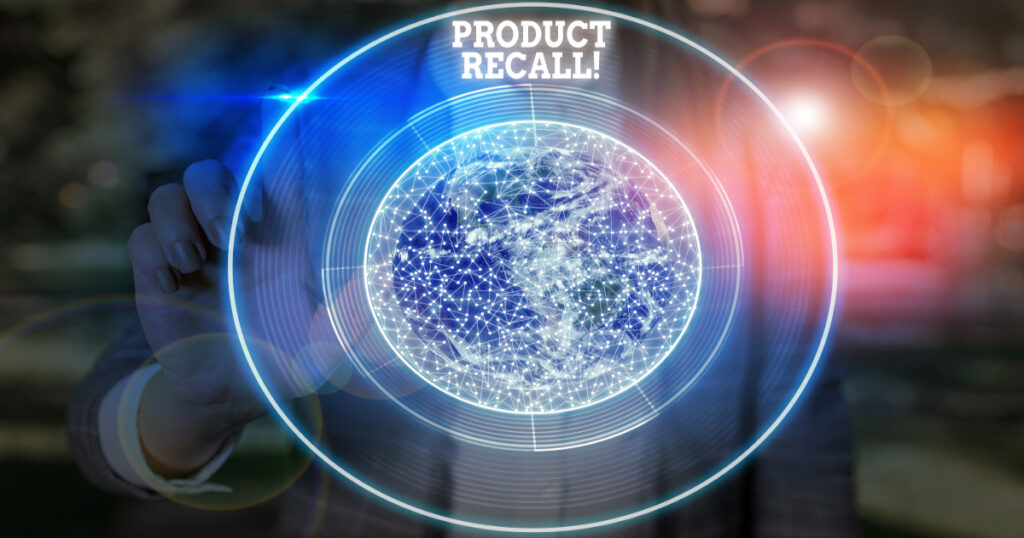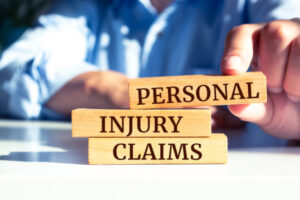Featured Article
Corporations Are Treated Like People—Except When They’re Not

In its infinite wisdom, the U.S. Supreme Court ruled that corporations are people for purposes such as free speech, political donations, religious rights. While the ramifications are many from such questionable logic, one big difference still exists when measuring the rights of the everyday Joe versus Joe’s corporate boss: Joe’s sins can land him in jail.
The Ozark Trail Recall
I saw this week that Walmart is advising the public to stop using its Ozark Trail 64-ounce stainless steel water bottles because the plastic lid “can forcefully eject” and lead to injuries. Now that fact in and of itself is not a corporate sin, and in law, is not deserving of punishment. Accidents will happen and many are unforeseen. Innocent retailers are often protected from lawsuits if they simply sold the product that ended up defective, leaving the manufacturer as the target defendant if the event could have been prevented.
Walmart’s Knowledge and Brand Role
Walmart’s sins are many in this instance, however. And, rather than being just an innocent retailer, Walmart created this Ozark Trail brand to compete with the more high-priced brands such as Yeti, Hydro Flask and Stanley. That is all well and good. But the injuries that led to the Consumer Product Safety Commission (CPSC) recommending a recall, is not the first injuries brought to Walmart’s attention. In fact, the retailer first reported incidents leading to injuries to the CPSC as far back as 2018 – which Walmart was required by law to report to the CPSC. Had they not been so required, you can believe Walmart would have never reported any incident then or now.
Serious Injuries and Secret Settlements
What we have learned is that Walmart has been sued and has settled lawsuits brought against it by persons injured by these exploding tops, more than one leading to permanent blindness. One involved a bottle with apple cider a couple of days old had the lid “projected with tremendous force” and into the user’s eye. Another contained mango juice that when opened sent the lid into a lady’s face, whereupon she suffered “massive damage” to her jaw and face.
After settling in secret – a common practice in lawsuits – Walmart began placing warnings with the bottles against using the bottles for any liquids other than water, such as milk or fermenting beverages which “may cause pressure buildup and lead to lid failure and spills.” “Lid failure and spills?!” Lid failures and spills don’t blind innocent consumers simply wanting to use your products. If Walmart was truly concerned with protecting its customers, then its warning – since it decided the corporate sin of keeping the products on the shelves was one it could financially live with – should have warned that “others have been tragically injured and blinded by the lid exploding off the bottle like a frigging rocket, so we suggest you also visit our lawn and garden department and purchase the best goggles we offer!” Not much chance my suggested warning would have made it out of committee.
Corporate Negligence: The Role of Punitive Damages
So this brings us back to punitive damages. In one of these lawsuits, the blinded plaintiff will be able to recover for past and future medical expenses, past and future physical pain, physical impairment, mental anguish, and loss of enjoyment of life that will now be missing or curtailed due to their specific injuries. Companies have insurance for those sorts of injuries, and most also have insurance for punitive damages – those damages assessed because the corporations chose profits over people. We call them bean counters, these corporate financial types that report to the executives just how many lawsuits can be paid off or lost before the profits made from the sale of exploding Ozark Trail bottles are not worth the risk. Every major corporation has these guys. But this law firm has jurors whom we encourage to count beans as well.
Punitive Damages as Punishment
Punitive damages are awarded to punish. They are not for those instances when all reasonable efforts have been taken to ensure products sold are neither defective nor likely to injure consumers when used as intended. Punitive damages give juries an option to punish companies that bean count, that see such a financial upside to selling the product so that injuring a few people – or many if there are some serious bucks to be made from sales of the product – are still a good business decision. Regardless of what the Supreme Court has ruled in certain instances, corporations are not people, but are entities that by their nature were created to make money for their owners. In fact, corporate executives can be held accountable to their owners or stockholders for making very bad decisions that cause the corporation to not make money.
From Negligence to Reckless Disregard
Given that understanding of their nature, I have often said that unfettered capitalism leads to sin, and corporations are only as good as the people who run them. Walmart had knowledge of the exploding bottle problem, and instead of removing them from the shelves, it decided instead to place a warning – like everyone is going to read the fine print in the box – a warning that was misleading at best. In fact, that warning it inserted was designed to ensure this dangerous product continued to make Walmart money. A “defective lid” mentioned in the same breath at “spills” is designed to have the consumer conclude a leak of some sort may result so they better bring a rag on the camping trip. As such, the case goes from one of negligence to one of being in reckless disregard, knowing of danger and intentionally acting in manner that could be considered as malicious. In that instance, you hit them where it hurts by adding punitive damages onto the verdict to not only punish them and cause them to act responsibly in the future, but to impress the point to other corporations who are watching – and they are watching.
The Double Standard
If our hypothetical Joe had caused these types of injuries and continued to market the product, he would go to jail. It has become almost a trend now for local prosecutors to indict people if a car accident results in serious injuries or death, even when it was simply an accident. Reckless and malicious conduct sends the Joes of the world to jail. But the very lifeblood of a corporation – they are not people – is to make money. Yet they are seldom punished, and instead simply issue a recall and a statement like Walmart did in this instance, when it said, “The health and safety of our customers is always a top priority and we maintain that this product is of a conventional design and safe when used for water.” Did I also mention that hypocrisy is a sin?
This is why we do what we do.
Contact The Law Office of David M. Kennedy Today
If you or a loved one has been injured corporate negligence, don’t navigate the legal complexities alone. The Law Office of David M. Kennedy is dedicated to securing maximum compensation for victims in North Texas and Southern Oklahoma. Contact Us today for a free consultation to discuss your case and understand your legal rights.




